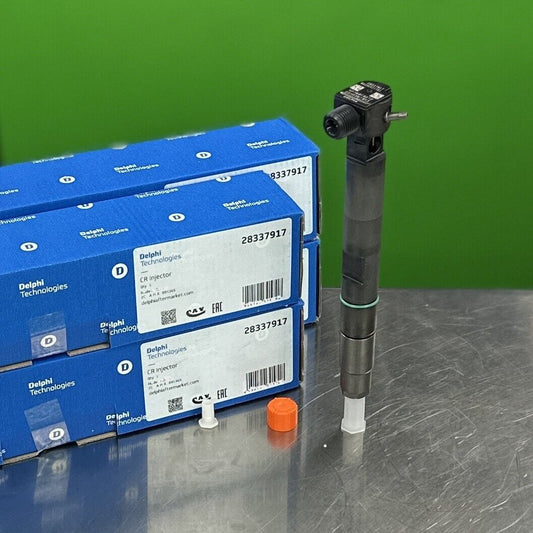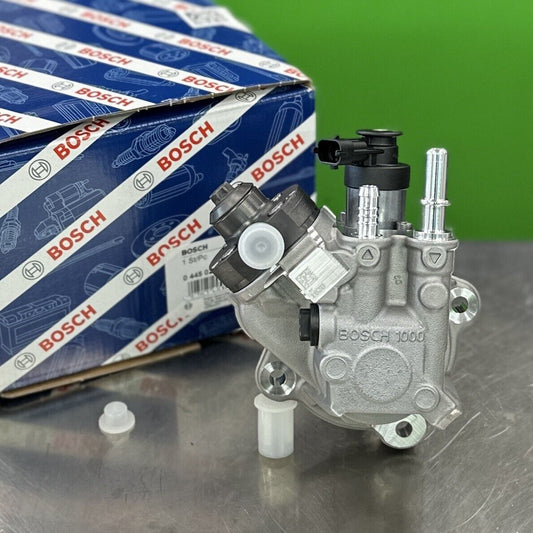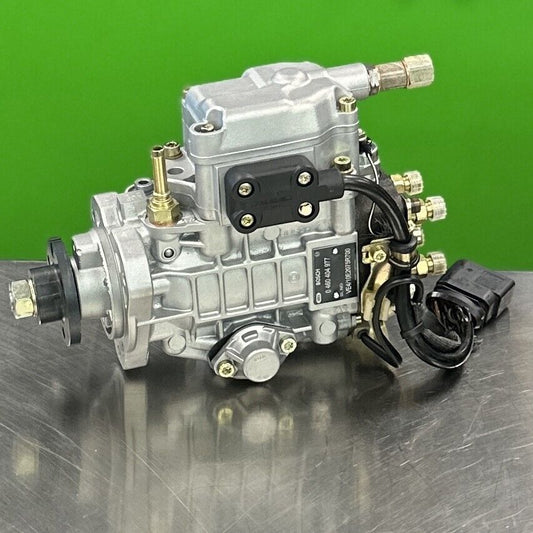Fuel Injector Replacement: Signs It's Time
Knowing when to replace your fuel injectors is crucial for maintaining your vehicle's performance and fuel efficiency. Learn about the signs that indicate it's time for a fuel injector replacement.
If you notice a sudden decrease in your vehicle's fuel efficiency, it could be a sign that the fuel injectors are failing and need to be replaced.
Frequent engine misfires, rough idling, or stalling can be indicators of faulty fuel injectors that may need to be replaced to restore proper engine function.
Unusual noises coming from the engine, such as sputtering or clicking sounds, could be a sign of fuel injector issues that require replacement to prevent further damage.
If your vehicle's check engine light is illuminated, it could be a warning sign of various issues, including faulty fuel injectors that may need to be replaced to resolve the problem.
Decreased Fuel Efficiency
When your vehicle's fuel efficiency takes a sudden nosedive, it's like your car is trying to tell you something important, but in a cryptic language only it understands. Imagine your car as a partner in a dance competition, and suddenly it starts stepping on your toes and going out of sync. That's exactly how it feels when your fuel injectors are on the verge of retirement.
Picture this: you're driving down the road, and instead of gliding smoothly like a swan on a serene lake, your car starts chugging along like a tired old tractor. The fuel efficiency drops, and you find yourself making more frequent stops at the gas station, draining your wallet faster than you can say ""fill her up."" It's like your car has suddenly developed a bottomless pit for fuel, and no matter how much you pour in, it's never enough.
But fear not, for all is not lost! Decreased fuel efficiency is a red flag waving frantically in the wind, signaling that your fuel injectors are waving their white flags and need to be replaced. It's like giving your car a new lease on life, a fresh set of lungs to breathe in the sweet air of efficiency once again.
So, when you start noticing that your car is turning into a gas-guzzling monster, take heed of the warning signs. Don't let your fuel injectors drag your vehicle's performance down the drain. It's time to show those worn-out injectors the door and welcome in a new set that will bring back the harmony in your car's fuel consumption.
Engine Misfires
Engine misfires can be a frustrating issue for any vehicle owner. When your engine misfires, it's as if your car is hiccupping, causing a disruption in its smooth operation. Imagine your engine as a well-orchestrated symphony, with each component playing its part perfectly. However, when a fuel injector starts misfiring, it's like a musician playing the wrong note, throwing off the entire performance.
One of the key signs of engine misfires is a noticeable lack of power and performance. Your vehicle may struggle to accelerate, feel sluggish, or even hesitate when you press the gas pedal. This can be akin to an athlete suddenly feeling weak and unable to perform at their best due to a lack of proper fuel.
Additionally, engine misfires can lead to increased emissions and environmental impact. When fuel injectors are not functioning correctly, they may not deliver the precise amount of fuel needed for combustion, resulting in unburned fuel exiting the exhaust system. This can be compared to a factory releasing excess pollutants into the air due to a malfunctioning filtration system.
If left unaddressed, engine misfires can also cause damage to other engine components. The unburned fuel can lead to a buildup of carbon deposits in the engine, affecting its overall efficiency and lifespan. It's like allowing a small leak in your house to go unrepaired, eventually causing water damage to other parts of the building.
When experiencing engine misfires, it's essential to address the issue promptly to prevent further damage and ensure optimal performance. Ignoring the signs of faulty fuel injectors can lead to more significant problems down the road, potentially resulting in costly repairs. Just as addressing a small crack in your windshield can prevent it from spreading and requiring a full replacement, timely fuel injector replacement can save you from more extensive engine issues.
Strange Engine Sounds
When your vehicle starts making strange engine sounds, it's like your car is trying to communicate with you in its own unique language. Imagine your car is a musician, and these sounds are its way of playing a mysterious melody. Sputtering noises could be the equivalent of off-key notes, while clicking sounds might resemble a drumbeat gone wrong. These unusual engine sounds are like the car's way of saying, ""Hey, something's not right here!""
Listening to your car's engine is like tuning in to a radio station where the signals are mixed up. You might hear clunking, hissing, or even knocking sounds that seem out of place. It's as if your car is trying to send you a message through this cacophony of sounds. Ignoring these strange noises is like ignoring a ticking time bomb - you never know when the explosion might happen.
Check Engine Light
When your vehicle's check engine light suddenly illuminates, it can be a source of anxiety and confusion. This small yet powerful light serves as a messenger, alerting you to potential issues within your vehicle's system. While it can indicate a range of problems, one common culprit behind a glowing check engine light is faulty fuel injectors. These crucial components play a vital role in delivering the right amount of fuel to the engine for combustion. If they start malfunctioning, the check engine light may be triggered as a warning sign of trouble brewing under the hood.
Imagine the check engine light as a vigilant guardian, standing watch over your vehicle's health. When it flickers on, it's like a red flag waving in the wind, urging you to take action before a minor issue escalates into a major problem. Ignoring this warning sign could lead to more severe damage and potentially costly repairs down the road. By addressing the underlying cause, such as malfunctioning fuel injectors, you can prevent further complications and keep your vehicle running smoothly.
One way to decipher the message behind the check engine light is through diagnostic tools that can pinpoint the specific issue triggering the alert. These tools provide valuable insights into the health of your vehicle, helping you identify the root cause of the problem. In the case of faulty fuel injectors, prompt action is essential to prevent any adverse effects on your vehicle's performance and longevity.
Replacing faulty fuel injectors in a timely manner can not only extinguish the check engine light but also restore your vehicle's optimal performance. Think of it as giving your car a new lease on life, allowing it to operate at its full potential without any hindrances. By investing in regular maintenance and addressing issues promptly, you can ensure that your vehicle remains reliable and efficient for years to come.
```htmlFrequently Asked Questions
-
How do I know if my fuel injectors need to be replaced?
There are several signs to look out for that indicate it may be time to replace your fuel injectors. These signs include decreased fuel efficiency, engine misfires, strange engine sounds, and the illumination of the check engine light. If you experience any of these symptoms, it is advisable to have your fuel injectors checked by a professional.
-
Can I replace the fuel injectors myself?
While some experienced car enthusiasts may be able to replace fuel injectors themselves, it is generally recommended to have this task performed by a qualified mechanic. Fuel injector replacement requires specific tools and knowledge to ensure proper installation and function. It is best to leave this job to the experts to avoid any potential issues.
-
How often should fuel injectors be replaced?
The lifespan of fuel injectors can vary depending on various factors such as driving habits, fuel quality, and maintenance practices. In general, fuel injectors may need to be replaced every 50,000 to 100,000 miles. However, it is essential to follow the manufacturer's recommendations and have them inspected regularly to determine the appropriate replacement interval for your specific vehicle.



